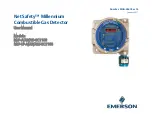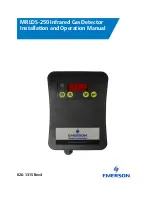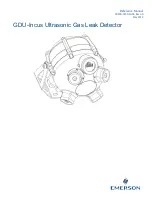
You will probably find lots of bottle
caps, metal pull tabs, and foil wrap.
You should collect these and dispose
of them in the relevant recycling bins.
Do not be discouraged. Keep
searching and you will be sure to find
some rewarding objects.
6
7
Inspired by
RESPECT OTHERS!
Always ask permission from the property
owner before searching. Found objects are
usually the property of the landowner, unless
you come to a different agreement. It is a good
idea to check current local, regional or
national laws. If a find is of significant
monetary or historic value, you should report it
to local authorities, as ownership might
automatically revert to the government which
may pay a ‘finder’s fee’.
RESPECT THE ENVIRONMENT
and be thoughtful! It’s generally wise
to take an extra bag along for any
rubbish you dig up. It is good
practice to remove and properly
discard these findings instead of
burying them again. Do not leave
rubbish for other coin hunters
to find.
Metal detecting is usually forbidden
at historic sites and in most parks,
so please check before searching.
When recovering lost items, always
make the smallest hole possible and return
the ground surface to the way it was before
you started to dig.
Do not use a shovel to dig! Many coin hunters
use a small garden trowel and a flat-blade
screwdriver.
When searching in sand, you will find it easier
to use a scoop or a sieve with small holes.
If the coins you find are really dirty, you should
be very careful in cleaning them, especially if
they are old and possibly of high value. Do not
use harsh chemicals or abrasives. Try soaking
them for a day or two in olive oil, and then rub
them gently with an old towel to remove the
dirt.
Tips
CAUTION:
DO NOT DIP THE
SEARCH COIL IN
WATER. THIS IS NOT
AN UNDERWATER
METAL DETECTOR.
YOU WILL DAMAGE
THE UNIT.
- Around old houses, especially
near large trees where people
often sit down to rest.
- Along grassy areas next to paths.
- Sites where annual fairs,
carnivals or circuses take place.
- Along beaches.
- Local areas where historic events
such as battles occurred, or
where troops may have
travelled or camped –
remember to check
current local laws before
detecting in any historical
places.
- Your own front and back
gardens.
Always remember to ask
permission before searching
on privately owned property.
Always tell an adult where you
are going!
Here are some places you
might try searching for
metal objects:
METAL
DETECTORS HAVE
COILS. ELECTRICITY
(OR AN ELECTROMAGNETIC
CHARGE) IS SENT THROUGH
THESE COILS TO THE GROUND
AND BACK TO THE COILS.
METALLIC OBJECTS
INTERRUPT THE SIGNAL,
WHICH RESULTS IN THE
UNIT CREATING AN
AUDIBLE SOUND
(BEEP).
IN 1881,
ALEXANDER GRAHAM
BELL (THE INVENTOR OF THE
TELEPHONE) CREATED THE
EARLIEST FORM OF METAL
DETECTOR EVER RECORDED, WHEN
HE TRIED TO FIND A METAL BULLET
LODGED IN THE PRESIDENT OF THE
UNITED STATES BACK. PRESIDENT
JAMES GARFIELD LAY DYING OF AN
ASSASSIN'S BULLET, SO BELL
HURRIEDLY INVENTED AN
ELECTROMAGNETIC
DEVICE TO TRY TO
LOCATE IT.






















